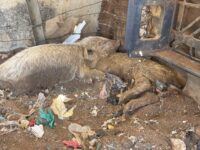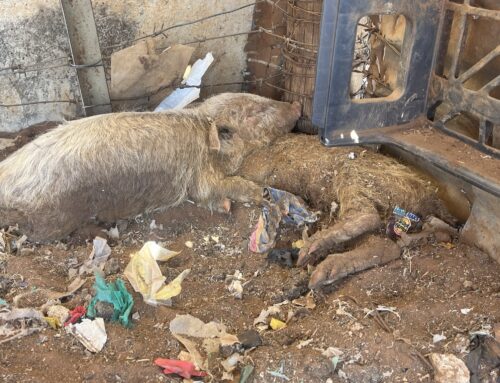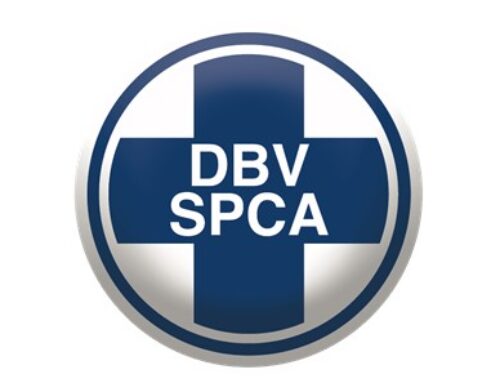A Week ago to date, Al Mawashi’s “death ship”, the Al Messilah departed from the East London Harbour. 57 231 sheep, 800 cattle and 178 goats were shipped off to the Middle East for purposes that will no doubt deny them the same legal protection they would have been afforded in South Africa.
Australia, Al Mawashi’s largest supplier of sheep, has a Northern Summer ban between 01 June to 14 September with further restrictions until the end of October. Al Mawashi opportunistically chose to source sheep from South Africa during this period, knowing our Government is sadly far from reality, unlike its Australian counterparts who recognises that sheep suffer immensely during this period when exported live by sea over the equator into the Northern Hemisphere.
There have been allegations that the NSPCA has some hidden agenda and that there were no animal welfare-related issues regarding this shipment. The role of the SPCA movement as a whole is clear – we are legally mandated, in terms of the Animals Protection Act No. 71 of 1962, to prevent and stop the suffering of animals in our country. That is our agenda. In 2016, The Constitutional Court stated in its judgement that, “The historical development of the protection of animal welfare, and the role of the NSPCA in upholding this mandate, illustrates why the NSPCA plays a critical and unique role in our polity. Its long history of guarding the interests of animals reflects constitutional values. ”
As a matter of fact, numerous welfare concerns were raised by NSPCA inspectors, not only during the three days of loading at the harbour and the feedlot in June but also in the months leading up to the vessel’s arrival.
Inspections at Al Mawashi’s feedlot in Berlin were conducted under warrant since December 2020. Numerous welfare concerns were observed and sections of the Animals Protection Act were contravened. Animals were found with broken legs, rectal prolapses, contagious ecthyma(Orf), ocular and respiratory conditions, wire-worm infestation, lameness and footrot, maggot infestation of feed and water troughs etc. Whilst numerous warnings were issued, little effort was made to rectify the concerns. The findings of the inspections conducted in May 2021 has resulted in the compiling of a docket for animal cruelty.
During the three days of loading in June 2021, 1 400 animals were removed who were either underweight, lame, had eye conditions, prolapses, or were suspected of being pregnant. Considering that these animals were presented for screening it is unimaginable what the feedlot looked like days preceding the loading. These animals were not fit for live export by sea and had our officials not been present to remove them, they may have been loaded onto the vessel in their compromised state.
A total of 23 sheep required emergency slaughter due to the severity of the state that they were found in by our officials, a further 332 animals were sent to an abattoir for priority slaughter.
Dr.N.R.Weyer, a veterinarian who assessed the sheep at the feedlot noted in his report that, “The number of sheep with co-morbidities that passed the inspection point prior to loading at the Feedlot appeared to be unusually high.”
As a final point, six newborn lambs were discovered on board the vessel by NSPCA inspectors on the final day of loading. These little beings were unfortunately born into this abhorrent trade and are unlikely to experience anything outside of suffering until they draw their final breath. Due to the very restricted Court Order granted to us by the East London Magistrates Court, we sadly could do very little to protect these innocent animals.
Our animals have once again been robbed of the full protection they deserve under South African law. The NSPCA refuses to yield to this ongoing battle where our primary motivation is the untold suffering of hundreds of thousands of animals since October 2019, the start of our live export to the Middle East nightmares.
We remain determined, through the support of the public and the empathy we have for our animals, to fight for their protection and have the export of live animals by sea north of the equator banned in our country.
If you are as passionate about animals and their well-being as we are, consider supporting our causes by donating.
Latest News Posts
Will You Be the One Who Takes Action?
Most people will scroll past this. But will you be the one who stands up for animals?
Animal welfare isn’t always in the spotlight, but it changes lives – for every neglected, abused, or suffering animal we help. Our teams work tirelessly, often behind the scenes, ensuring animals across South Africa are protected.
This work is relentless. The challenges are immense. But with more hands, hearts, and resources, we can do even more.
The equation is simple: the more supporters we have, the greater our reach, the stronger our impact.
Be part of the change. Become an NSPCA Project Partner today. From just R50 per month, you can help ensure that no animal suffers in silence.








